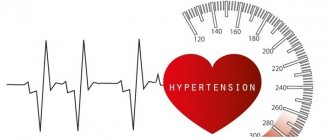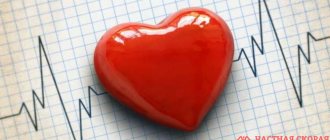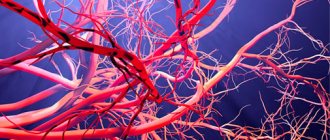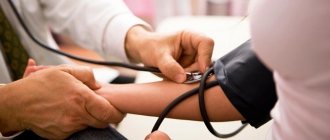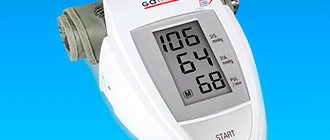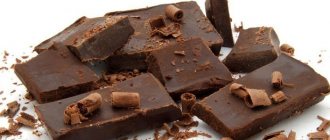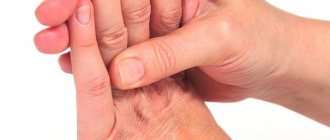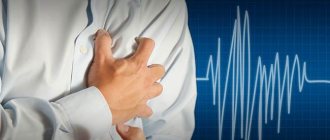Basically, a rapid pulse occurs as a result of any physical or emotional stress. And often this does not indicate health problems.
However, such a symptom may be a manifestation of a serious disease if its frequency reaches high values. The same applies to blood pressure.
Moreover, mostly these two symptoms appear simultaneously. This article will discuss a sharp increase in blood pressure and pulse, the causes of these phenomena, as well as the consequences to which they can lead.
What is a high heart rate?
The pulse may increase during intense physical exertion or as a result of emotional stress.
However, in some cases, if blood pressure and pulse rise sharply, the reasons may lie in some diseases or other health problems. It must be monitored and promptly seek help from a specialist.
A normal human heartbeat is considered to be 60-90 beats per minute; in most cases, the indicators depend on the individual characteristics of the body.
If the pulse jumps from 50 to 110 beats per minute, then this indicates tachycardia. This is a fairly serious problem and cannot be ignored, and if the heart rate increases to more than 120 beats per minute, we can talk about an exacerbation of the symptom. Tachycardia indicates that the heart is unable to pump blood effectively.
A high heart rate is a fairly serious reason to think about your state of health, because such a phenomenon caused by any factor can cause a number of complications.
Factors that provoke a rise in pressure
Systolic and diastolic pressure varies from person to person. The norm is considered to be the numbers at which he feels comfortable. The most dangerous period for the patient is between three in the morning and six in the morning.
A constant increase in pressure at this time leads to vascular disasters.
Hypertension is called an indicator of the social well-being of society. This is true, since today it is diagnosed in almost half of the world's inhabitants. But nocturnal hypertension illustrates this statement especially accurately. Provoke its development:
- heredity (especially in the first line: mother, father, brother, sister, grandfather, grandmother);
- gender - hypertension is gender-specific and more often affects men, since male sex hormones stimulate a rise in blood pressure, men have more muscle mass, which means the volume of blood flow, which naturally increases blood pressure, they work harder physically, and do not always have time during the night recover;
- stress - adrenaline, norepinephrine (stress hormones) cause tachycardia, which automatically creates a load on the myocardium, forcing it to pump more blood, leaving a minimum of time for rehabilitation;
- bad habits - drinking alcohol in the evening or smoking a cigarette at night increases blood pressure by 5 units per year, based on vasospasm, hypoxia of tissues and organs;
- physical inactivity – lack of regular physical activity increases the risk of hypertension by 50%; an untrained heart is not able to fully recover overnight;
- excess weight is the scourge of modern society: overeating at night increases the risk of arterial hypertension by 6 times (!) - every extra 500 g causes an increase in blood pressure by one (in Russia, 30% of the population suffers from obesity);
- salt - love for salted cabbage, cucumbers, vobla, caviar, mayonnaise - the national eating habits of Russians, all this leads to water retention in the body and stress on blood vessels; salty food at night increases the risk of developing serious complications three times.
The conclusion is obvious: the higher the quality of life of an ordinary person, the lower the risk of developing hypertension.
Tachycardia and its consequences
Tachycardia is a common occurrence for many and does not give any cause for concern. This is especially true for people who face many psychological problems in everyday life. However, along with the pulse, the heart rate also increases, which is especially common at night. This may not just be a consequence of something difficult, but something more serious.
As a result of tachycardia, various pathologies can develop:
- Various heart diseases may occur, such as: ischemia, myocarditis, and so on;
- malignant tumors and metastases may occur in the body;
- sleep dysfunction;
- serious infectious diseases;
- there is a deficiency of hemoglobin in blood cells;
- high blood pressure;
- critical decrease in magnesium and potassium levels;
- very high body temperature;
- disruptions in the functioning of the endocrine system occur. The pathology begins to progress with hyperthyroidism and myxedema, and ends with menopause, accompanied by abnormal hormone production.
People who have already acquired pathologies, or have congenital defects and chronic diseases of the cardiovascular system, most often experience a rapid pulse. To find out why the pulse is jumping and what treatment methods to take, you need to contact a cardiologist. You should also not self-medicate, because in this way you can seriously aggravate your health condition. Before taking pills or decoctions, you should definitely visit a doctor.
There is no need to think that it is “heart disease” that needs treatment, because practically every person who does not care about their health and does not pay due attention to it is at risk.
Features of treatment
Therapy for nocturnal hypertension depends on the stage of the pathology. At the initial stage, lifestyle correction and medications prescribed by a doctor are sufficient. The goal is to reduce the load on blood vessels.
Medications
It is recommended to reduce nighttime blood pressure slowly: by 25% in a couple of hours, no more. Prescribing or stopping medications on your own is dangerous. For nocturnal hypertension use:
| Group of drugs | Name of the drug |
| Beta blockers | Metoprolol, Whisken, Lokren, Atenolol |
| Calcium antagonists | Amlodipine, Corinfar, Felodipine |
| Angiotensin inhibitors | Capoten, Spirapril, Monopril, Enalapril |
| Diuretics | Indapamide, Chlorothiazide, Clopamide, Hydrochlorothiazide |
Self-administration of diuretics is undesirable, as this can lead to leaching of calcium from the body. As a supplement, B vitamins are prescribed, which restore nerve cells, and magnesium – normalizes heart rhythm.
ethnoscience
After consultation with a doctor, use traditional medicine:
| Product name | Preparation, reception |
| Flax seeds tone blood vessels | Course – 2 weeks: daily a teaspoon of crushed seeds in any form |
| Beetroot with honey, lemon (2:1:1) | 2 tablespoons of beet juice with one - honey and lemon juice, course - a month with a month break |
| Garlic infusion | Three crushed cloves of garlic are brewed with two glasses of boiling water, left for 24 hours, drunk a tablespoon once a day, course – 14 days |
| Onion-honey tincture with alcohol | Squeeze juice from 3 kg of onion, mix with half a liter of honey, vodka, add partitions of 30 walnuts, leave for 10 days, drink 20 ml three times a day |
It is impossible to get rid of high blood pressure forever, since the walls of blood vessels adapt to it and do not return to normal even with the help of pills. However, preventing complications is a real task.
Nutritional Features
Nocturnal hypertension, especially grade 2-3, requires a salt-free diet. In addition, it is necessary to calculate an individual drinking regime, which also contributes to minimal water retention in the body (approximate norm is a liter of water).
Your doctor will help you choose a balanced diet based on treatment table No. 10. If a hypertensive crisis occurs at night, it is better to refuse food for a day. Then, exclude any broths for a week, eating only vegetables and fruits.
Psychological relief
It can be easily done at home. Effective:
- pets, gardening;
- slow dancing, culinary club, embroidery, fishing - favorite hobbies;
- relaxation: yoga, meditation, music, drawing, modeling, the sound of waves, birds singing on a disk - everything that pacifies;
- massage - only as an addition to relaxation: light classic or acupressure (strong vibration increases blood pressure);
- baths with relaxing, soothing fillers: mint, lavender, pine needles or a soft shower - tropical shower;
- rejection of bad habits;
- light dinner: vegetables and fruits or dairy option: kefir, cottage cheese, sour cream;
- sleep hygiene: room ventilation, comfortable pillow, orthopedic mattress, waking up and going to bed at the same time;
- communication with grandchildren.
It is necessary to be able to get rid of negative thoughts, recharge with vigor and positive emotions.
Causes
Reasons that cause sudden increases in heart rate may include:
- non-compliance with the regime. People who work often and do not rest enough bring their bodies to the point of physical exhaustion;
- emotional stress;
- pathology of the upper chamber of the heart;
- age category over 55 years;
- obesity;
- thyroid dysfunction;
- frequent use of potent drugs, energy drinks;
- heart diseases. The cardiovascular system can respond to most negative factors, an example is damage to the heart valves;
- use of certain substances and medications.
Pressure measurement: how to measure blood pressure correctly
At first glance, it seems that there is nothing complicated measuring blood pressure After all, even if you do not have a medical education and do not know how to use a conventional device for measuring blood pressure, you can always buy yourself an automatic tonometer . And measure the pressure with it.
However, you also need to know how to use an automatic (electronic) tonometer. If you use such a device incorrectly, you can get completely incorrect numbers for your blood pressure.
This will lead to the fact that when treating hypertension you will be guided by false tonometer readings and will not be able to choose the right treatment for yourself. Below are the most common mistakes when measuring blood pressure.
Errors when measuring pressure:
Mistake #1: Using the wrong pressure gauges
For convenience, many people buy wrist tonometers —tonometers that are worn on the patient's wrist. A high-quality, branded wrist tonometer is a very good and convenient thing, but many wrist tonometers (not all, but many of them) are designed for people no older than 50-55 years.
And if the wrong wrist blood pressure monitor, they may get incorrect results when measuring blood pressure - especially if the person has weak or non-elastic blood vessels!
Many older people do not know this; they use wrist tonometers and rely on their readings. And blood pressure pills are also taken based on the readings of the wrist tonometer. And then they are surprised that taking the pills makes them feel bad.
Mistake No. 2. The habit of measuring blood pressure 2 or 3 times in a row.
Many people, especially those who use automatic tonometers, like to measure the pressure a second time after the first blood pressure measurement “to be on the safe side.” It seems that, in their opinion, this will be more accurate. But it turns out the other way around - when measuring again, the pressure numbers may differ from the previous result by 20-30-40 units!
This dispersion of numbers has led many people to consider automatic blood pressure monitors to be inaccurate. “What kind of device is this that gives different readings every time!” - dissatisfied buyers of such a device are indignant, having poorly studied the instructions for the electronic tonometer.
Meanwhile, the instructions for most of these devices clearly indicate: repeated pressure measurements on the same arm can be carried out no earlier than 1-3 minutes after the previous measurement (and ideally after 5-7 minutes). Then everything will be fine with the device readings.
If you really want to measure your blood pressure, then measure the blood pressure on your other arm a second time. But keep in mind that on the right and left hands the pressure numbers may differ by 10-15 units (10-15 mmHg). This is fine.
In general, when used correctly, good electronic blood pressure monitors from trusted companies are very accurate and reliable. And their testimony can be trusted. They give fairly accurate readings. Unless the person taking the blood pressure makes the following mistake #3.
Mistake No. 3. The habit of measuring pressure in a hurry
Most people measure their blood pressure almost on the run, casually. But it's not right. To get the correct numbers when measuring blood pressure, before this procedure you need to sit quietly for 5-10 minutes and relax.
And further. Do not talk while measuring blood pressure!
If, while measuring your blood pressure, you are talking, or worried, or taking your blood pressure right after going outside, the tonometer will show 20-30 extra units of pressure. Or even all 40. By the way, it is for this reason that many people whose blood pressure is basically normal turn out to be hypertensive when visiting doctors.
Imagine the scene: a patient comes to the clinic. Going to the doctor itself is a cause for concern for many people. And then there were a lot of people, a turbulent situation, a queue. For anyone, even a healthy person, the pressure in such a situation will jump by 10-20 units.
But here, finally, is the coveted doctor’s office (after 30-40 minutes of waiting in line). The sight of a white coat causes stress in many people - “white coat syndrome”. We get an additional plus of 10-20 units to the pressure.
And then the doctor hurries you - sit down quickly, tell me what’s bothering you. And at the moment when the patient talks about his complaints, the doctor measures his blood pressure. Which automatically raises the pressure numbers by another 10 units.
And unless you are a thick-skinned elephant, which nothing can break through at all, then when measuring your blood pressure at the clinic, you are guaranteed to be measured with an extra 30-40 units. And if you are emotional, then all 50 extra units of pressure (extra 50 mmHg).
That is, a person whose blood pressure is ideal - 120/70 - when measuring pressure in a clinic, may well get 160/80 or 170/90. And from now on, for doctors, he will become a hypertensive patient. Who will be prescribed to take drugs every day…. Ugh, excuse me, it came out. Not drugs, of course, but pills to lower blood pressure.
I remember how once my mother was almost brought to a hypertensive crisis in the clinic. Actually, my mother is an emotional person, but despite her advanced age, her blood pressure is like that of an astronaut - 120/70.
And then one fine day my mother needed to go to the clinic for a certificate for the pool. The kind lady at the reception desk advised me to go see a therapist in the meantime - “Your card is empty, you rarely go to the doctor.”
For some reason, my mother did not explain to the woman that she had a doctor - a famous doctor who kept her health under control, and obediently went to the therapist. And there (this is strange) there was a queue. Mom got excited. And when she finally got to the doctor’s office, she measured her at 150/90. A little too much, of course, but for 67 years old it’s not a disaster at all. At home, at rest, this pressure would certainly drop to normal in about 20 minutes.
But neither my mother nor the doctor at the clinic knew this. And they also did not know that the pressure cannot be measured on one arm twice in a row (after all, they did not read this book).
The doctor turned out to be very conscientious. Responsible. And the pressure was immediately measured again - “just in case.” An opportunity presented itself immediately: upon repeated measurement, the tonometer showed 160/90.
“Oh, what a horror,” said the kind woman doctor, “you’re about to have a stroke.” We must run to the head of the department.”
Truly, sometimes excessive zeal is worse than a nuclear bomb. Can you imagine the state of an emotional and no longer young woman (my mother) when she announced that she was about to have a stroke? Of course, her blood pressure immediately jumped even more. And in the office of the head of the department it was already 180/95.
“Yes, now there will be a stroke,” the kind head of the department said thoughtfully, “we need to urgently call an ambulance and go to the hospital.” After these words, the ambulance was called straight to the clinic, and my mother began to call me in hysterics, saying that she was being taken to the hospital.
Fortunately, the emergency doctor who arrived turned out to be a smart guy, and, after consulting with me on the phone, he gave my mother a Corinfar tablet, let her calm down, and after 15 minutes he measured the pressure again. By that time, the blood pressure had returned to normal, and my mother was sent home with her standard 120/70. Since then, her blood pressure has never risen above 130/80, which at her age, as you now know, is absolutely normal pressure.
But I’m scared to imagine what would have happened if I weren’t a doctor and if my mother hadn’t met such a smart emergency doctor. I can only assume that my mother would have been brought to a full-blown hypertensive crisis and would have been put on blood pressure pills for the rest of her life.
And here you may have a completely reasonable question: why is all cheese boron? Why am I so against blood pressure pills? After all, pills treat high blood pressure?
So, the question is: Do pills treat high blood pressure? >>
From the book by Dr. Evdokimenko “BEING HEALTHY IN OUR COUNTRY.” All rights reserved.
READ MORE:
- All important articles about hypertension and high blood pressure
- Hypertension, arterial hypertension, high blood pressure: a very profitable disease!
- The first chapters of the book “Being healthy in our country”
- All articles by Dr. Evdokimenko
Symptoms
The symptoms that arise due to a high pulse directly depend on the reasons that provoke this phenomenon.
So, with constant tachycardia, a person begins to feel a rapid heartbeat, sometimes because of this a feeling of strong blows in the chest may appear.
The sudden onset of an attack of tachycardia can lead to an increased heart rate. In this case, the person does not feel much discomfort and, as a rule, the attacks pass quickly.
With paroxysmal supraventricular tachycardia, a fairly strong heartbeat occurs, which is often accompanied by dizziness and headache.
The importance of diagnostics
Examination for hypertension will help save health, and sometimes life. At home, full monitoring of increased blood pressure levels at night is impossible. However, patients at risk need to measure their blood pressure at home three times a day - when they wake up in the morning, during the day and before going to bed. These figures allow us to determine at what time of day the indicators are highest.
To prescribe adequate treatment, it is necessary to undergo diagnostics in a hospital using the ABPM method - 24-hour blood pressure monitoring. Such an examination most accurately determines nocturnal hypertension, which will allow you to adjust your medication regimen.
High pulse with blood pressure
A high pulse can occur both with normal pressure and with high or low pressure.
With normal blood pressure, a high pulse may indicate the presence of tachycardia. It can be divided into two types: pathological and physiological.
The first option arises as a result of any disturbances in the work and functioning of organs and systems, and the second manifests itself exclusively under conditions of stress.
Negative factors that can cause the manifestation of tachycardia can be caused by disruptions in the nervous system, pathological changes in the heart, or complete intoxication of the body, and in children this most often manifests itself due to respiratory distress.
The symptoms that accompany a high pulse with normal blood pressure are:
- dizziness;
- darkening of the eyes;
- severe tinnitus;
- general weakness.
A high pulse with low pressure is the first sign of the development of tachycardia.
Other symptoms may also occur, such as a loud heartbeat, shortness of breath, dizziness, headache, and feeling tired. This condition is most often observed in people over 30 years of age.
In addition to tachycardia, a rapid pulse with low pressure can indicate myocardium, coronary artery disease and other defects. Often this symptom manifests itself in the first stages of the development of these diseases, so it is recommended to consult a doctor in a timely manner.
A high pulse with high blood pressure may indicate the presence of tachycardia. Recent studies have found that patients with hypertension are more prone to problems with the cardiovascular system. Over time, other symptoms are added to this symptom, such as dizziness, shortness of breath and headaches.
Complications
A nocturnal rise in blood pressure can provoke:
- spontaneous cardiac arrest;
- AMI (acute myocardial infarction);
- ACVA (acute cerebrovascular accident of ischemic and hemorrhagic type);
- myocardial fibrillation or fibrillation;
- PE (pulmonary embolism).
The reason is simple: if the pressure rises, but it does not naturally decrease, the internal organs do not have time to recover from overload during the day, so the heart, brain, kidneys, and liver experience hypoxia and do not receive the necessary nutrients. The risk of death with hypertension increases by 30%.
Blood pressure surges
To begin with, it is worth noting that sudden jumps in blood pressure and pulse are dangerous to human health. At such moments, the vessels feel a sudden excess load and, in the worst case, can rupture, resulting in a heart attack, stroke and other serious illnesses. Jumps in blood pressure and heart rate are a problem faced by people of different age groups.
There can be many reasons for a sudden drop in pressure:
- smoking;
- excessive alcohol consumption;
- abuse of coffee and other products containing caffeine;
- endocrine system disorders;
- pathology of the cervical spine;
- arterial hypertension;
- changes in weather conditions;
- stress and overwork;
- change of climate zone;
- vegetative-vascular dystonia;
- arterial hypotension.
Signs of pressure drop:
- noise in the head;
- feeling of heat;
- Strong headache;
- excessive sweating;
- tachycardia;
- loud heartbeat;
- dizziness;
- “flies” before the eyes;
- pain or discomfort in the heart area;
- darkening of the eyes.
Why does nocturnal hypertension occur?
The patient himself can determine the cause of high blood pressure at night, since this disorder is preceded by certain events during the day. An increase in vascular tone occurs as a result of nervous, mental stress or poor nutrition, including excessive consumption of fatty foods in the afternoon.
Among the diseases that precede the occurrence of high blood pressure, there is a dysfunction of the thyroid gland, when there is excess production of hormones.
Nocturnal increases in blood pressure may precede the initial stage of menopause
Very often, blood pressure increases at night in menopausal women due to hormonal imbalance, but the phenomenon is short-term in nature. Episodes of isolated hypertension during the period of adaptation to physiological changes should be controlled by regular monitoring of blood pressure. If your blood pressure is subject to frequent changes, you should consult a specialist.
Abuse of salty foods
Blood pressure becomes high in the evening if you overindulge in salty foods throughout the day. Excessive concentration of sodium chloride contributes to fluid retention in the vascular bed. Blood viscosity increases, the epithelial cells lining the inner surface of the vessels become swollen, which leads to a decrease in their lumen. Due to arterial stenosis, blood circulation is disrupted, tissues and organs are deficient in oxygen and nutrients. To restore hemodynamics, it is necessary for blood pressure to increase, so the endocrine system is involved in the process, provoking an additional release of adrenaline, as a result of which vascular spasm is aggravated. At the same time, the load on the myocardium increases, as the muscle is forced to pump large volumes of blood.
To prevent nocturnal episodes of hypertension, it is recommended to reduce the amount of salt consumed, not only as a dietary supplement, but also in prepared foods. To quickly remove sodium chloride, you can use diuretics or rosehip decoction, which will allow you to remove the excess with urine.
Diseases of the renal system
If your blood pressure rises at night, this is the first sign of renal arterial hypertension. The mechanism of the pathology is associated with activation of the renin-angiotensin-aldosterone system, as well as with excessive stimulation of vasopressin and vasoconstrictor prostaglandins.
In addition, Angiotensin 2 stimulates the adrenal cortex, increasing the production of aldosterone, which leads to secondary retention of sodium and fluid in the body, causing an increase in peripheral resistance.
Nocturnal fluctuations in blood pressure may be manifestations of renal hypertension
Nocturnal hypertension can occur against the background of diabetic nephropathy. Its detection precedes the determination of protein in the urine, so daily monitoring of blood pressure can prevent the progression of diabetes complications.
Nervous overstrain
One of the main reasons why blood pressure levels may rise at night is nervous overexertion, stress, negative emotions experienced during the day and causing tension in the sympathetic nervous system. Stressful situations provoke the release of adrenaline into the blood, which negatively affects the tone of the arteries. Chronic anxiety persists in humans even at night, so the normal slowdown of physiological processes does not occur.
Apnea syndrome
Stopping breathing is a common cause when a person’s blood pressure rises after sleep. In healthy people, during sleep the tone of the parasympathetic nervous system increases, due to which the body relaxes. When respiratory function is impaired, when a short-term cessation of breathing occurs, the concentration of carbon dioxide in the bloodstream increases and the level of oxygen decreases, as a result of which the hypothalamic-pituitary system is activated, causing sympathetic activity. Excessive production of catecholamines into the bloodstream leads to arterial spasm and high blood pressure. If sleep apnea attacks occur every night, the risk of hypertension increases significantly.
Features of hypertension with apnea:
- High blood pressure readings between night and morning.
- Low daytime pressure.
- Increased diastolic reading.
- Lack of effect from antihypertensive drugs.
Overeating before bed
Eating a large meal before bed, especially eating fatty, spicy, starchy foods, makes digestion difficult. The activity of the digestive tract is activated, which does not allow the body to fully rest. In addition, overfilling of the stomach and intestines causes increased pressure on the diaphragm in a horizontal position, and disruption of the functioning of the cardiac and vascular systems occurs.
No ads 2
Video on the topic
Video explaining the relationship between pulse and pressure:
So, why do blood pressure and pulse rise sharply? The reasons may lie in the body’s normal response to physical activity, or in the development or presence of a disease. If your pulse and blood pressure fluctuate, the best solution would be to consult a doctor in order to rule out the possibility of pathologies in any case or to detect them in time.
The information on the MyMedNews.ru website is for reference and general information, collected from publicly available sources and cannot serve as a basis for making a decision on the use of medications in the course of treatment.
MyMedNews.ru
And we also have
Causes, symptoms and principles of treatment of high blood pressure in children
Is your blood pressure going up?
To make a diagnosis and provide the necessary assistance, a neurologist will listen to your complaints, conduct an examination and a comprehensive neurological examination, which includes:
- collection of anamnesis of the disease (conversation);
- special neurological tests;
- reflex diagnostics;
- local palpation examination of the spine and musculoskeletal system.
In addition to the main examination, if necessary, the doctor may prescribe:
- MRI;
- Ultrasound;
- X-ray;
- Lab tests;
- EEG;
Foods that increase blood pressure
If you have identified a tendency to increase blood pressure in the evening, you need to reconsider your diet in the direction of reducing the amount of foods that are dangerous in this regard:
- Pickles, gastronomic delicacies with high salt content;
- Carbonated sweet drinks;
- Confectionery;
- Tea, coffee, energy drinks;
- Heavy fatty dishes and smoked meats;
- Some seafood (herring, red caviar);
- Spices and hot spices;
- Canned foods;
- Sugar and sweets;
- Butter, cream, sour cream, salted cheeses and other animal fats.
If you are prone to hypertension, the body instantly reacts with high blood pressure parameters to the intake of nutrients from this list, since their breakdown products narrow the blood vessels and clog them with cholesterol deposits, wastes and toxins.
High blood pressure medications
Hypertension must be treated in combination:
- Diet;
- Phytotherapy;
- Medicines;
- Sanatorium-resort events.
A balanced diet plays a special role in restoring normal blood pressure. When adjusting the menu, hypertensive patients need to pay special attention to “harmful” foods:
- Fat meat;
- Canned foods;
- Semi-finished products;
- Quick snacks (fast food);
- Caffeinated drinks;
- Alcohol.
Neglect of these restrictions often leads to a hypertensive crisis. In the first stages of hypertension, medicinal herbs help well. To combat high blood pressure, traditional medicine offers infusions of the following plants:
- Rosehip;
- Aloe;
- Calendula;
- Hawthorn;
- Viburnum;
- Lingonberries;
- Raspberry leaves;
- Motherwort.
All plant materials (except aloe) are processed in the form of tinctures and decoctions. You can use them for monotherapy or prepare preparations. Juice is obtained from aloe, which should be drunk 3-4 drops for 30 days.
